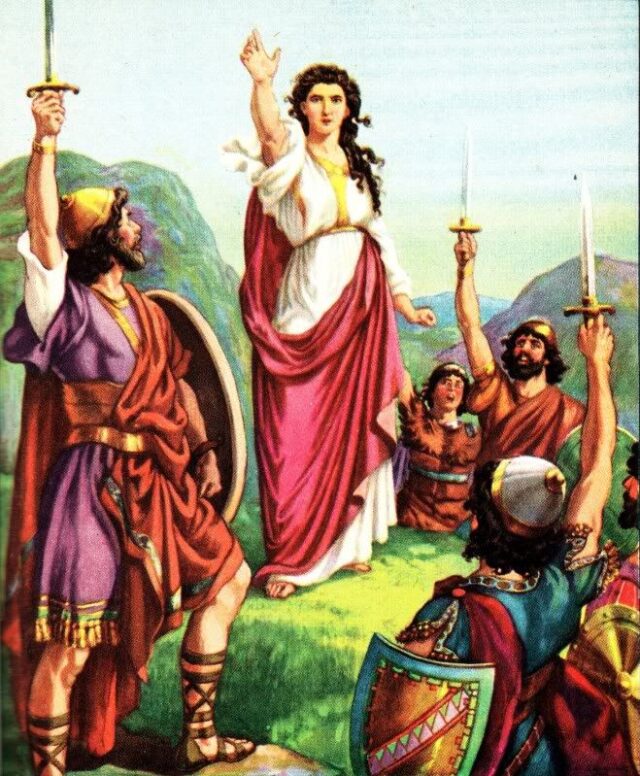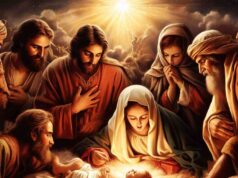By Pr Isaiah White
Before we learn from the life of Prophetess Deborah, we need to discuss briefly the book of Judges.
In our English Bibles, the title ‘Judges’ serves as a translation of the Hebrew title ‘Shophetim’ (one who delivers people from affliction and oppression).
The best English rendering of shophetim then, would not be ‘Judges’ but ‘deliverers’.
However, characteristically the office of the Judge had a job description of one raised to bring (by war or law) the life of the people into acceptable order. So both terms (judges and deliverers) apply and it does not matter which one you prefer.
Outline
The first two chapters of Judges are concerned with what I call the: Israelite-God Relationship Cycle. Israelites had to eliminate all the Canaanites upon their settlement as Moses had commanded (Deuteronomy 20:17), but failed.
Eventually when they opted for co-existence they compromised their values and the Canaanites oppressed them. This oppression necessitated Judges to always defend and fight for them.
So in Canaan, their lifestyle was characterized by sin and oppression by heathen forces. When they repented, then God would send a deliverer/judge.
After the accomplishment of the particular judge, the nation of Israel would be peaceful.
According to the structure of the book of Judges, in some incidences after a long peaceful time, the cycle kicked off again.
From Chapter 3 to 16, there is nothing but the life, success, achievements, failures and mistakes of Israel and its Judges.
In Chapter 3 we have Othniel and Ehud, then a female Judge Deborah in Chapter 4-5. We shall draw lessons from Judge Deborah in our next article.
In Chapters 6-9, we have Gideon (Jerubbaal). Jephthah is in Chapters 10-12 and finally, Samson appears in Chapters 13-16.
The last four Chapters, 18-21, address the lack of unity of all the twelve tribes that materializes into a cold war that finally launches a tribal civil war.
This is due to the absence of one common national leader. However, Israel does not seek a leader like Moses or Joshua, but a king.
The recurrent issue in these chapters upon which all action hangs is that in those days there was no king in Israel (Judges 18:1, 19:1). Whether this agenda was achieved after the war or long after the civil war, the Israelites had already launched a transition from a theocracy to monarchism.
Judges and who they were
According to Judges 2:16, these deliverers were Nazarites which means chosen and set apart at birth.
But the Judges in Israelite communities were a faithful nucleus, who were concerned with the spiritual life and sobriety of the people of God. Prophetess Deborah belonged among these.
After the Israelites entered Canaan, they spent over 300 years fighting the oppression of Canaanites. The judges are the individuals who led the Israelites in these constant struggles.
These judges were regional, political, militant and seasonal leaders whom the spirit of the Lord raised to deliver the people of Israel every time they were oppressed.
The period of Israel under judges was 300 years (Judges 11:26) and these judges were more than those we have in our times.
The role of the judge today is to ensure that justice prevails based on the law of the land. The Biblical judges, however, were more of revolutionaries whose tenet was the God of Israel, the nation of Israel and its tradition.
The nation of Israel had a chauvinistic culture and for one to be a priest, he had to come from the Levitical order; for one to be a national leader, at least he had to have been close to Moses just like Joshua. And it had to be a man.
When Deborah came to the scene, she overruled most of the traditional beliefs of Israel, especially the issue of gender roles and the role of women in divine affairs.
Women could not serve as Judges according to Israelite traditions until women like Deborah stood out in the time of need.
Men of other tribes also couldn’t serve in such an office until men like Jephthah (Gileadite), and Samson (Danite), who had extra-ordinary talents were used by God.
The book of Judges tells the story of Israel’s total failure. Failure to drive out the Canaanites influenced a threefold Israel compromise: morally (Judges 2:19), spiritually (Judges 2:20; 3:5-6), and politically (Judges 3:1-4).
We have each judge dealing with a mix of the three in their tenure.
The book also reports about God’s unwavering patience, mercy and active intention to deliver sinners like Israelites, you and me.






















